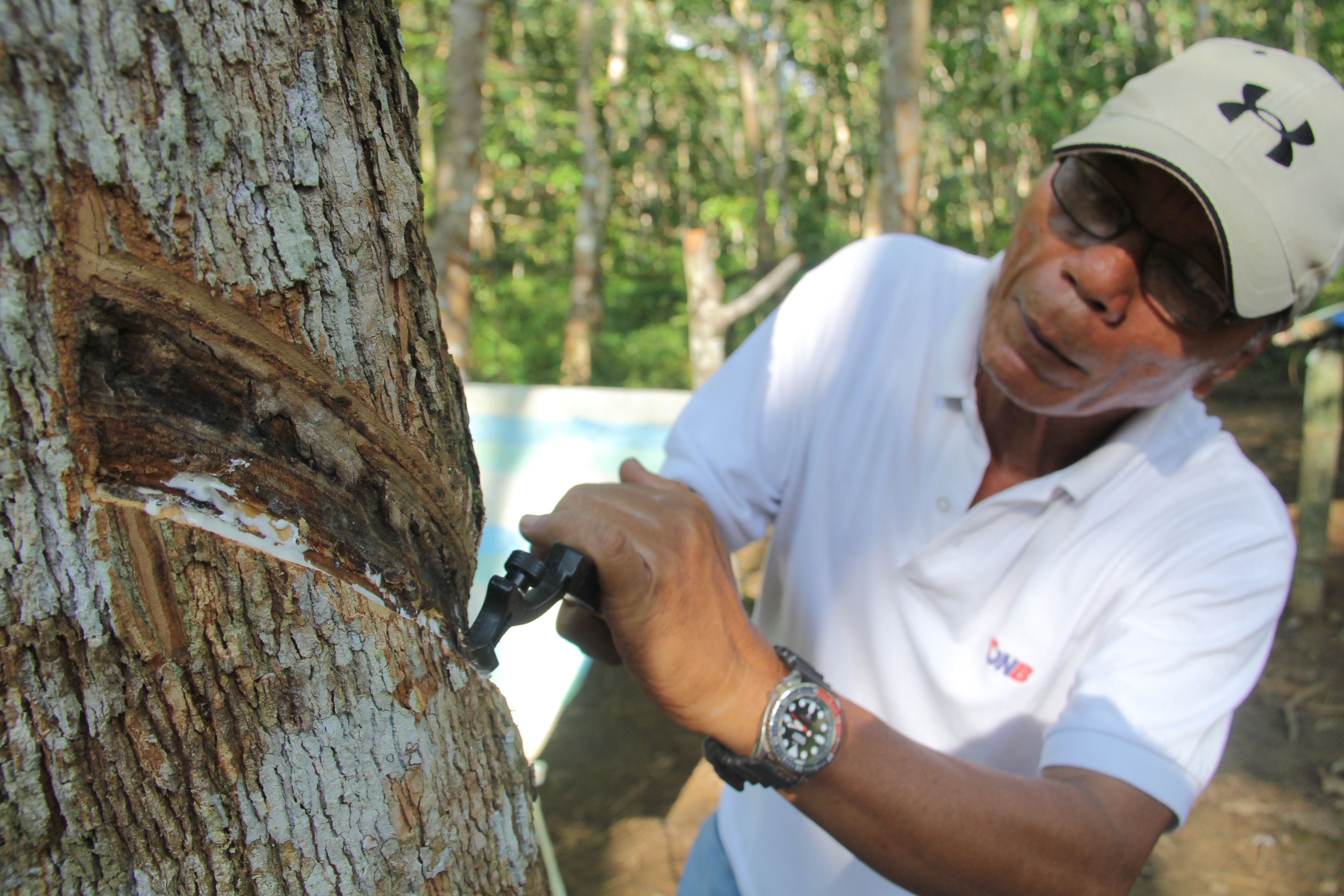Rubbing a Fortune

“Life was very difficult back then,” Mr. Romeo Atenta, the coop manager started.
Then was referred to a time when all of them were just workers of the rubber company. “We hardly can send our children to school,” he continued.
Traversing the area, you will see towering rubber trees, aligned oil palm trees and other fruit-bearing trees. From afar, men are loading sacks of rubber cup lumps in a six-wheel truck. These are what this land offer the farmers.
The land, consisting of about 303 hectares located in Brgy. Teresita , Bayugan 1, Agusan del Sur, initially planted with rubber and several fruit trees like durian, mangosteen and coconut was voluntarily sold and distributed to the farmer-beneficiaries of the government’s agrarian reform program in 1999.
Then, with 51 members, the closed-type JCA Agrarian Reform Beneficiaries Multi-Purpose Cooperative (JARBEMCO) was organized on April of the same year.
In the year 2001, with only P37,200 start-up capital, JARBEMCO formally started its production-based economic operation with rubber. “Because the challenge that confronted us that time is how to make these lands productive,” he continued.
“We may have the technology, but we barely have money to expand. The existing trees are going senile”, he furthers.
To increase the cooperative’s production-based economic activities, JARBEMCO slowly expanded its plantation coverage in 2004-2005 with their engagement in 120 hectares’ oil palm venture with the assistance of the Land Bank of the Philippines (LBP) via loan financing assistance. Technical assistance and seedlings were provided by the Filipinas Palm oil plantations, Inc. (FPPI). In more than three years, palm oil development project became commercially productive.
Projects unceasingly pour. In 2008-2010, they were able to build their own two-story cooperative building where they put up their office, cooperative consumer store and function hall for rent. In 2014-2015, they became a recipient of P 6M farm-to-market road which enable them to easily transport their production to the market.
However, the problem on production and expansion funding persists, hindering the cooperative to fully maximize the potential of the awarded land.
In 2015, in partnership with the Land Bank of the Philippines, DAR through its Agrarian Production Credit Program (APCP) approved a P6.78 million loan to JARBEMCO. With an interest of only 9.5% per annum, the lowest by far, the cooperative was able to finance for an expansion covering 75 hectares.
“We were so thankful that we became recipients of the APCP,” Atenta expressed.
The credit facility is good for five years.
Until this time, DAR in partnership with other agencies, is continuously providing the cooperative with extensive exposure and technical know-how on tending the farm and running the business.
“We are truly grateful to the DAR for all the assistance extended. Without the agrarian reform program, we will forever be mere company workers until present. Thru DAR, we became land owners which gave us economic security and hope. Now we are becoming businessmen,” he narrated.
“We are now able to send our children to better schools”, Atenta added, citing that most of their labor goes to funding the education of their children.
“Managing a cooperative has several ups and downs. But the officers and members must focus on the vision. In a cooperative, officers and members alike should work hand in hand, and that became JARBEMCOs weapon,” Atenta elaborated.
Just like rubbing a fortune, the cooperative is now operating a P40 million business, giving every farmer-member better returns.
It all started with a land award planted with rubber. Now, it has come a long way.
